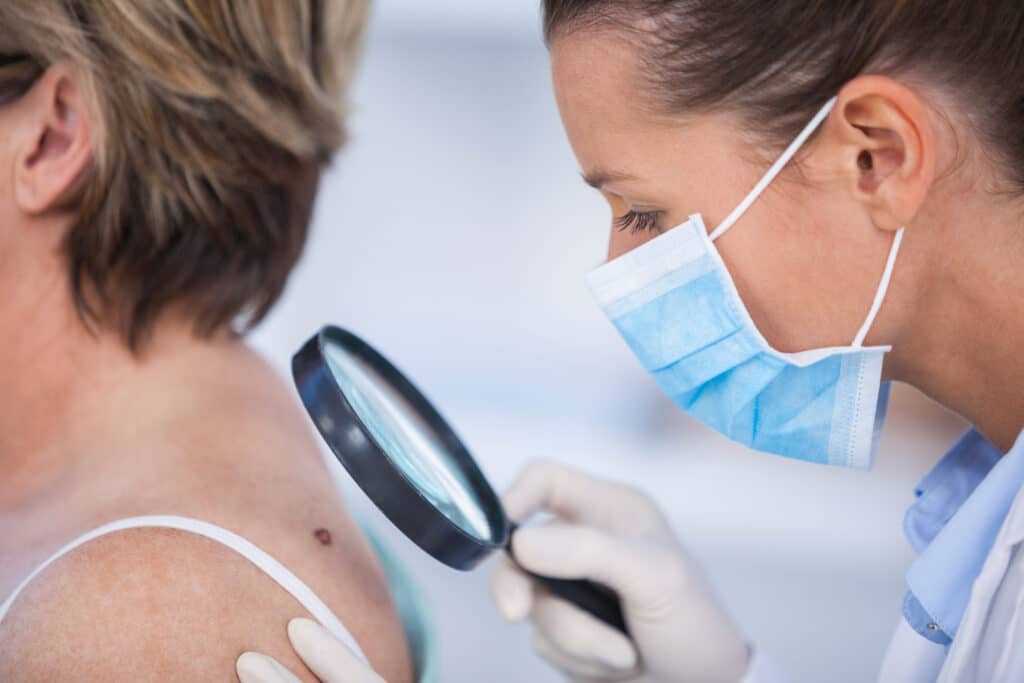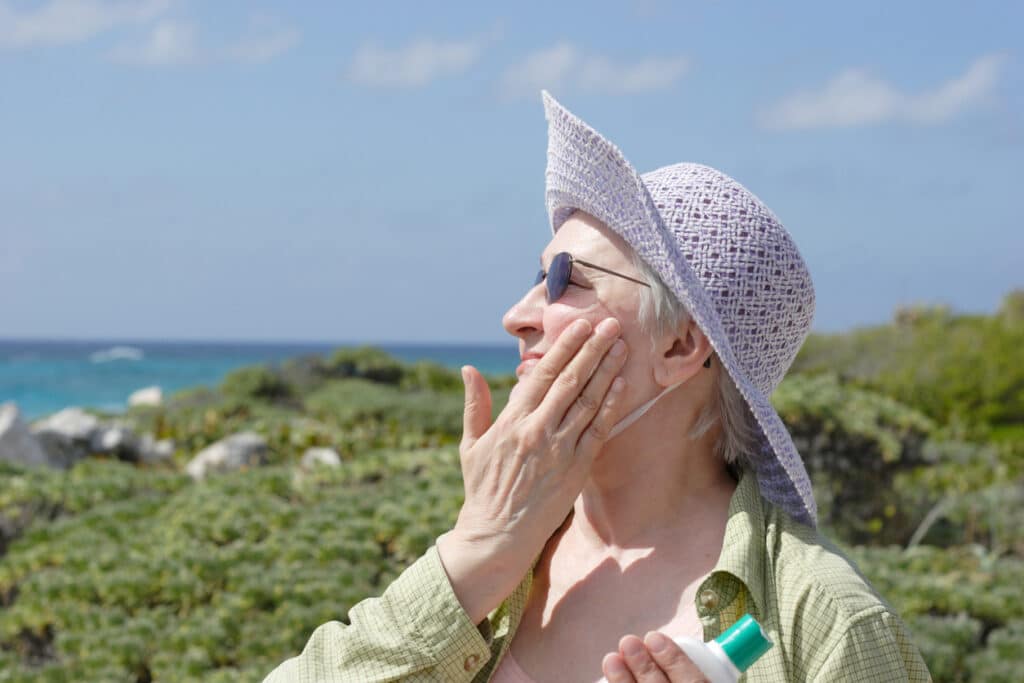
The American Cancer Society recommends a professional skin cancer screening every three years for people ages 20-40, especially those living in sunny climates. People ages 40 and older should have a screening annually. May is Skin Cancer Awareness Month. If you haven’t had a recent screening, make an appointment today.
Skin cancer is the most commonly diagnosed cancer in the U.S. By age 70, one in five people will have developed skin cancer. The main cause is too much exposure to ultraviolet (UV) light. People who use tanning beds are also at risk. Fortunately, skin cancer is one of the most preventable cancers. Using a broad-spectrum sunscreen with an SPF 15 or higher helps protect the skin from harmful UVA and UVB rays. Cover up with clothing, a hat, and wear sunglasses when outside. Avoid peak times of sun between 10 a.m. and 4 p.m. Remember that the skin can sunburn even on cloudy days.

There are four main types of skin cancer: basal cell carcinoma, squamous cell carcinoma, melanoma, and Merkel cell carcinoma.
Basal Cell Carcinoma
The most common type of skin cancer is basal cell carcinoma. It usually appears like a flesh-colored, pearly bump or a patch of pinkish skin. It is common on the head, neck, and arms but can develop anywhere that has had sun exposure. Fair skinned people are especially at risk.
Squamous Cell Carcinoma
Squamous cell carcinoma is the second most common skin cancer. It may look like a red bump, a scaly area, or a sore that heals and then reappears. Common sites are the face, neck, ears, neck, back, chest, and arms. Fair skinned individuals are at risk.
Melanoma
Melanoma is the most deadly skin cancer, and early detection is critical. Moles that change in shape, color, size, and feel may develop melanoma. It may also appear as a new dark spot with irregular borders. Melanomas are typically asymmetrical.
Merkel Cell Carcinoma
Although rare, this skin cancer is becoming more frequently diagnosed in adults over age 65. Many of these people are fair skinned and seldom protect their skin from the sun. This cancer is often mistaken for a sore, insect bite, pimple, or cyst. It may look like a red, pink, or purple raised spot that sometimes bleeds or itches. Merkel cell carcinoma is aggressive, so early detection is key.
Renaissance Villages Lifestyle
Renaissance Villages senior living communities provide compassionate care and many resources for our residents. One of our offerings is transportation to and from appointments. We never want a resident to miss a doctor visit due to reliance on the availability of others to take them. Transportation worries can be alleviated by scheduling in advance for appointments, errands, and outings. Our mission is to create great days for our residents. Contact us for more information.

